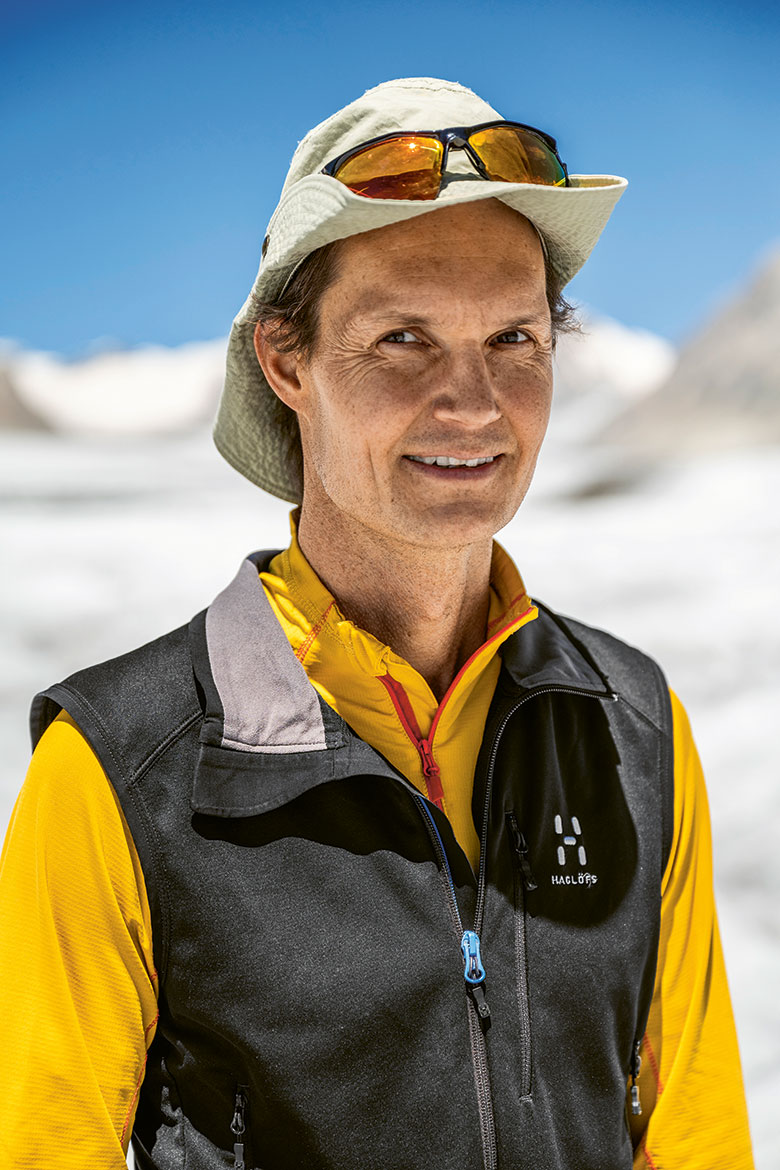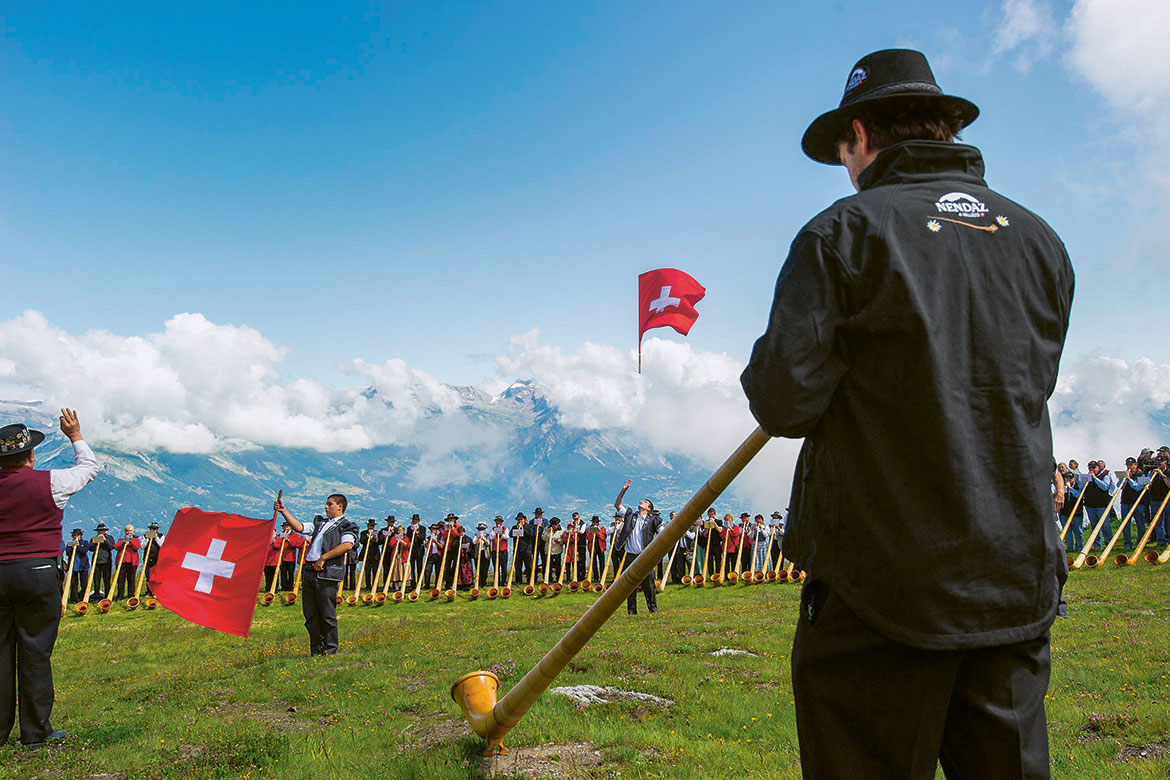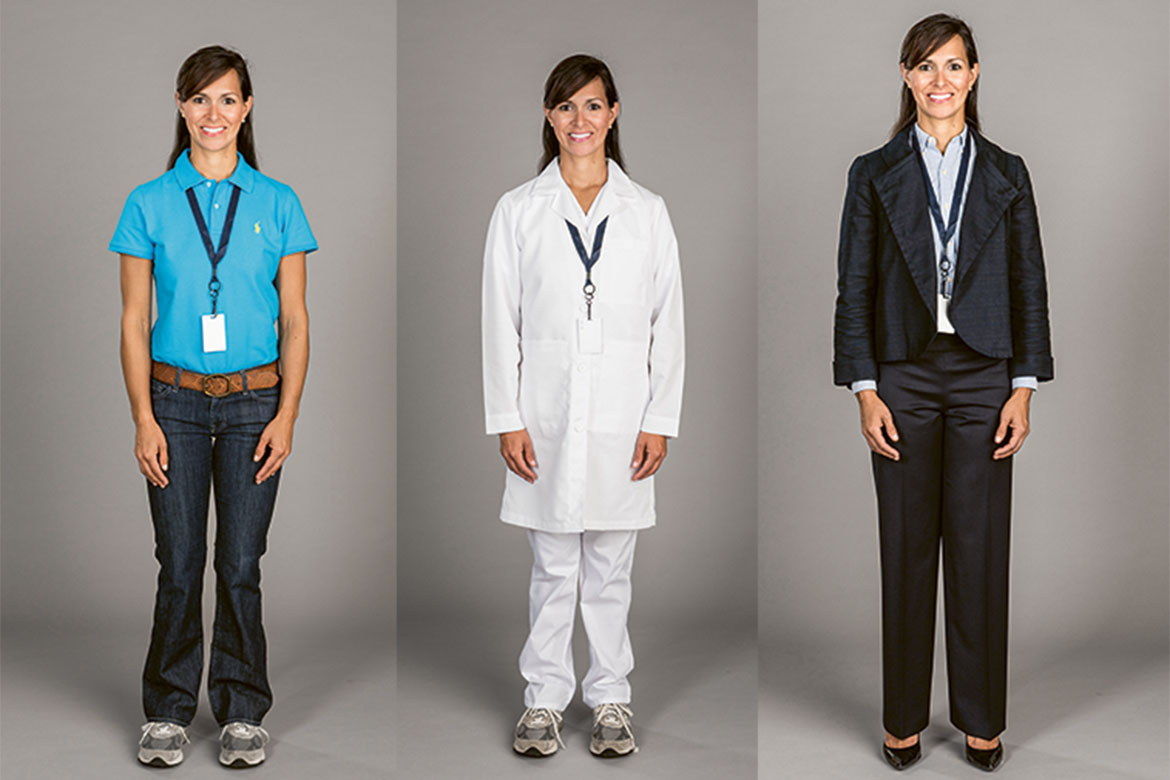Standpoint
“You develop a relationship with the glaciers. It makes you sad to see them die”
The less ice he measures, the more the media want to know about it. The glaciologist Matthias Huss of ETH Zurich has been doggedly observing the great glacier melt for years and has been telling the world about it. In 2022, everything became more extreme than ever before.

The glaciologist Matthias Huss from ETH is the Head of the Swiss Glacier Monitoring Network ‘Glamos’. He is shocked by this year’s glacier melt. | Image: Pascal Mora/Keystone
Matthias Huss, a tweet of yours attracted a lot of attention this summer. It was about the bitter end of measurements on the Corvatsch Glacier. Did you expect that?
You never really know with tweets. But glaciers are getting a lot of attention right now. In the autumn, our report on this year’s overall melting of the Swiss glaciers received a big international response. I was surprised at just how far the news travelled.
Why do you think your report gained so much attention?
The melting of the glaciers provides a particularly graphic illustration of the impact of global warming. What’s more, people associate glaciers with positive things – with holidays and hiking.
This autumn, you were on Swiss TV, the BBC and CNN. Do you like this kind of work?
(Laughs.) That’s a good question. It was very intense at the time. For days on end I did almost nothing but interviews. Though I’m really employed to be a scientist. At some point, I’d had enough of it.
But you’re persistent in spreading your news.
We receive federal money for the Swiss Glacier Monitoring Network ‘Glamos’. I see it as my responsibility to communicate our results to the population. So I’m actually very happy doing media work.
Your research has become a symbol of the lost battle against global warming. How do you feel about that?
The end of the Pizol Glacier last year was a very personal blow to me. It was my baby. I started taking measurements there 16 years ago when I was a young researcher. You develop a relationship with the glaciers. It makes you sad to see them die.
You are very active on Twitter and use strong adjectives such as ‘dramatic’, ‘beyond extreme’ and ‘shocking’. Aren’t you in danger of being told you’re just alarmist?
(Laughs.) We recently discussed this in our team. Those are harsh words, that’s true. But if we can’t use them this year, then when can we? The extent of this year’s loss of ice really shocked me: six percent of the remaining volume has gone. So far, no one has accused me of being alarmist.
Or of being merely an activist?
I don’t see myself an activist. Even though I support climate protection goals as a private individual, as a scientist I have to be able to offer my opinion independently, based on the evidence. That’s why I didn’t join the committee for the Glacier Initiative when I was invited. I have to present the evidence in such a way that it doesn’t simply dissipate. Science has to speak clearly.
How do you keep yourself motivated when the glaciers are literally melting away?
If anything, it increases my motivation. Humdrum, everyday work can get boring. It’s the extreme years that show just how massive the changes are that are occurring. And they emphasise how important data are if we are to determine these losses and tell the world about them.




